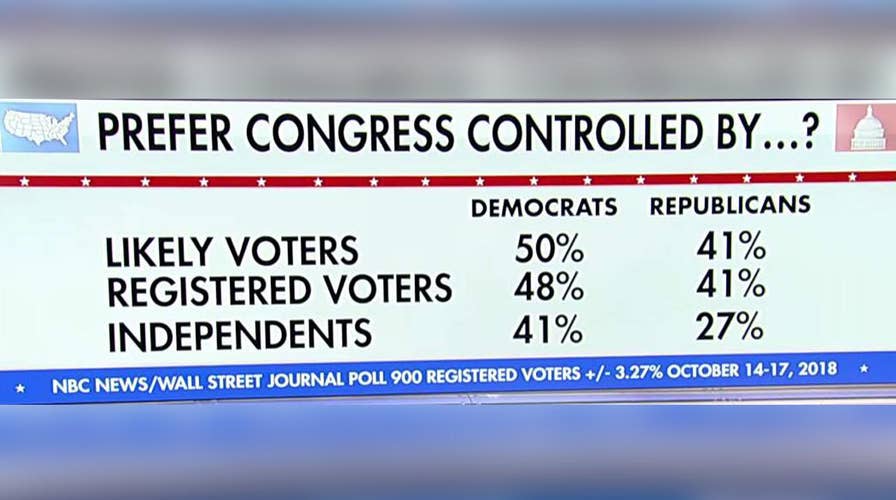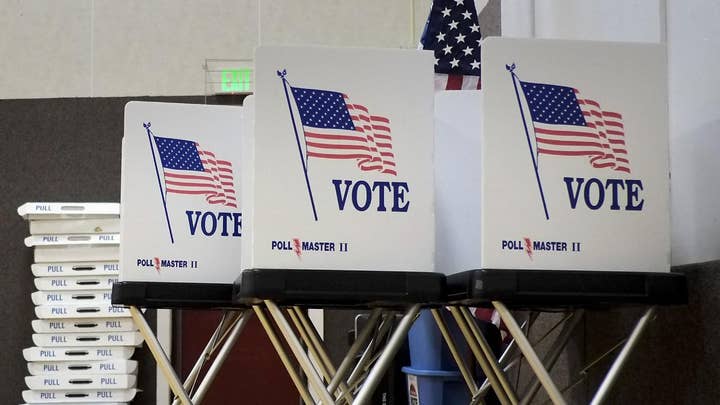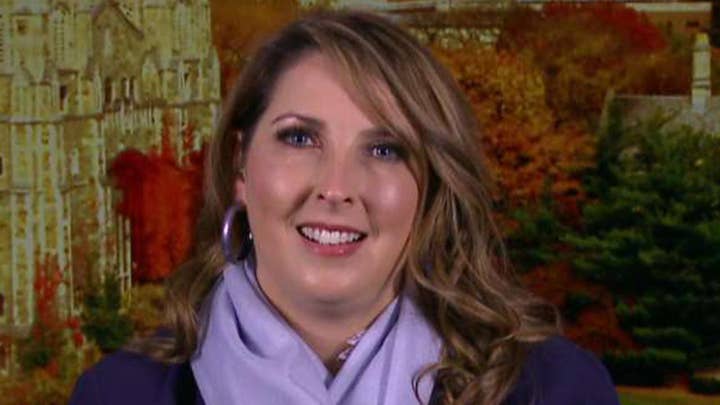Could Democrats' 'blue wave' be a big bust?
President Trump's approval rating on the rise ahead of the midterm elections.
Top Democrats are working to manage expectations about a "blue wave" sweeping the party into power on Capitol Hill, urging caution about those predictions amid fresh signs that the midterms could be much closer than anticipated.
With just over two weeks to go before the critical elections, Democratic National Committee Chairman Tom Perez said Monday that he doesn’t use the term “blue wave” to talk about a possible victory for his party. Even though House Minority Leader Nancy Pelosi -- who has her eyes on the speaker's gavel -- said just days earlier they could be looking at a Democratic "tsunami," Perez predicted a tight race for control of Congress.
“We always knew that this election was going to be close — I don’t use the term ‘blue wave,’ I always talk about the need for the blocking and tackling,” Perez told CNN. “I always talk about the need for organizing, to make sure you’re leading with your values, and that’s how we’ve been winning throughout this year and throughout 2017.”
Still, Perez said he is confident that Democrats will take control of the House and pull off victories in a number of gubernatorial races.
“I don’t think the Democratic advantage has ebbed,” Perez said. “We’re talking about the issues that matter most to people.”
Vermont Sen. Bernie Sanders cast even more doubt on the "wave" narrative.
“A lot of people talk about this 'blue wave' and stuff,” Sanders told The Hill. “I don’t believe it.”
Sanders, an independent who ran for president in 2016 as a Democrat, added: “I happen to think that on election night we’ll find a very, very close situation and maybe a handful of votes determining whether Democrats gain control of the House.”
The cautious comments come as the shifting midterm landscape reflects a Republican advantage in the Senate and the likelihood of a tough fight for control of the House -- which could be determined by just a handful of races, even as Democrats are still seen as having the edge.
Republican National Committee Chairwoman Ronna McDaniel said Monday on Fox News’ “America’s Newsroom” that the GOP should hold the Senate, and has a shot at the House.
“There’s a possibility to keep the majority in the House,” she said. “… But it’s going to depend on our voters turning out.”
The statements from Perez and Sanders stand in stark contrast to the optimism displayed last week by Pelosi.
Pelosi, D-Calif., expressed little doubt of a major Democratic victory in the midterms during a speech at the John F. Kennedy School of Government at Harvard University.
“People ask me all over the country, ‘Is it a wave, or is it a tsunami?'” Pelosi said. “And I said, well, in either case, it’s little drops of water. And many of them. How many a wave, how many more a tsunami. But they’re all close. They’re all very, very close. These are many close races.
“I think if the election were today, we would win the majority. I don’t know how much water would be involved, but we would win the majority. Wave or tsunami, we’ll see in three weeks.”
An NBC News-Wall Street Journal poll released over the weekend found that Democrats continue to hold a sizeable lead in the closing weeks before the midterms, but noted that in districts rated as the most competitive by the nonpartisan Cook Political Report, they are now in a dead heat with Republicans on the question of which party should control Congress.
“The current data shows that the Democratic advantage has ebbed but still with a large advantage. And the GOP shows some life,” Democratic pollster Fred Yang told NBC.
Overall, the poll found that 48 percent of registered voters would prefer having Democrats in control of Congress, compared with 41 percent supporting the GOP. That 7-point gap has narrowed from the 12-point lead the Democrats had in September.
Early voting in certain states, meanwhile, has offered positive signs for Democrats.









